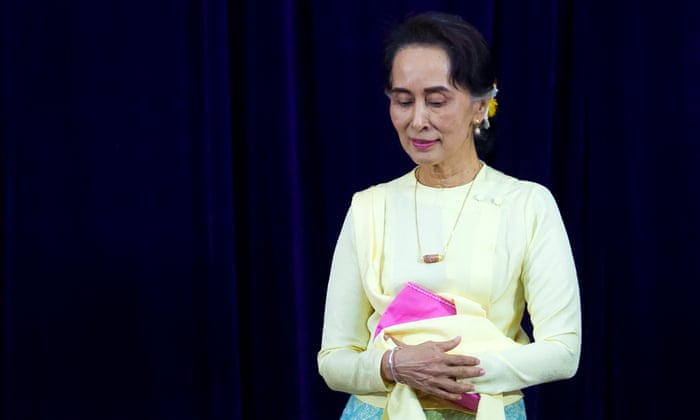A Brief Colonial History Of Ceylon(SriLanka)
Sri Lanka: One Island Two Nations
A Brief Colonial History Of Ceylon(SriLanka)
Sri Lanka: One Island Two Nations
(Full Story)
Search This Blog
Back to 500BC.
==========================
Thiranjala Weerasinghe sj.- One Island Two Nations
?????????????????????????????????????????????????Friday, August 31, 2018
Aung San Suu Kyi won't be stripped of Nobel peace prize despite Rohingya crisis
Prize was awarded for past achievements, says panel after UN report on mass killings by Myanmar’s military Myanmar’s Aung San Suu Kyi was awarded a Novel peace prize for her fight for democracy. Photograph: Ye Aung Thu/AFP/Getty Images
Myanmar’s Aung San Suu Kyi was awarded a Novel peace prize for her fight for democracy. Photograph: Ye Aung Thu/AFP/Getty Images Thu 30 Aug 2018 05.37 BST
Thu 30 Aug 2018 05.37 BSTAung San Suu Kyi’s Nobel peace prize will not be withdrawn in the light of a United Nations report that said Myanmar’s military carried out mass killings of Muslim Rohingya.
On Monday, UN investigators said Myanmar’s military carried out killings and gang rapes with “genocidal intent”, and the commander-in-chief and five generals should be prosecuted for the gravest crimes under international law.
Aung San Suu Kyi, who leads the Myanmar government and won the Nobel peace prize in 1991 for campaigning for democracy, has been criticised for failing to speak out against the army crackdown in Rakhine state.
Zeid Ra’ad al Hussein, the UN’s human rights chief, told the BBC Aung San Suu Kyi’s attempts to excuse the crisis were “deeply regrettable”, saying she could have stayed silent “or even better, she could have resigned”.
Since the operation began a year ago, tens of thousands of Rohingya Muslims have died and 700,000 have fled. Most are living in refugee camps in neighbouring Bangladesh.
Olav Njoelstad, the secretary of the Norwegian Nobel Committee, said on Monday: “It’s important to remember that a Nobel prize, whether in physics, literature or peace, is awarded for some prize-worthy effort or achievement of the past.
“Aung San Suu Kyi won the Nobel peace prize for her fight for democracy and freedom up until 1991, the year she was awarded the prize.”
The rules regulating the Nobel prizes did not allow for a prize to be withdrawn, he said.
The Norwegian Nobel committee consists of a panel of five Norwegians, mostly former politicians and academics, reflecting the different forces in the Norwegian parliament. The other Nobel prizes are awarded in Sweden.
In 2017 the head of the committee, Berit Reiss-Andersen, also said it would not strip the award after previous criticism of Aung San Suu Kyi’s role in the Rohingya crisis.
“We don’t do it. It’s not our task to oversee or censor what a laureate does after the prize has been won,” she said. “The prizewinners themselves have to safeguard their own reputations.”
